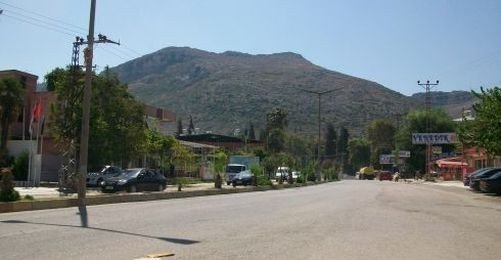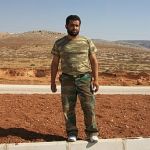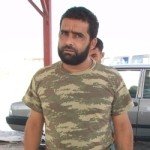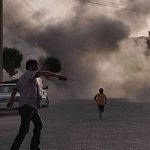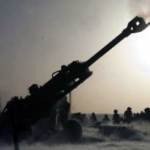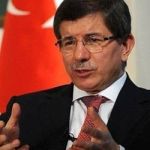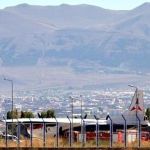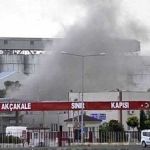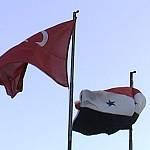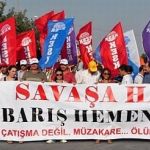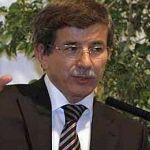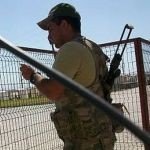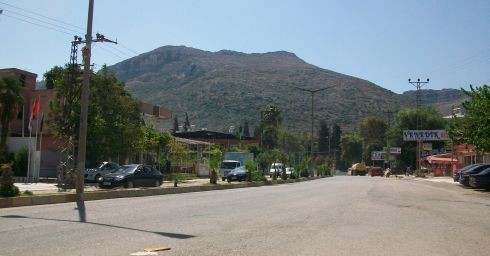
While debates continue raging over the Apaydın Syrian rebel camp located in the southern border province of Hatay, many locals have grown weary of the presence of Free Syrian Army (FSA) troops in the area and expressed deep-seated worries about the impact of the war on the local economy.
"No one is mentioning this; please write about it. Both shopkeepers and big investors have incurred substantial losses when the [borders] were shut down following the outbreak of the war. The investments in Hatay have gone bad. We are going bankrupt," said one local.
Everyone we met in Hatay's Antakya district complained about the local economic recession triggered by the war, while shopkeepers in the neighborhoods of Harbiye and Reyhanlı also told bianet their sales were progressively falling.
Business people who invested large sums in the area by building hotels and other commercial ventures following the opening of the Turkish-Syrian border said they did not even get the chance to start their operations yet.
Under the shadow of all the tensions brewing in the region and the beat of war drums growing ever louder, ordinary people are also seeing their daily lives grinding to a halt.
"FSA troops creating disturbance in town"
One can feel the underlying tautness while roaming about in town. Locals relate how the neighborhood of Harbiye, normally teeming and bustling with activity, turns into a ghost town after dark, while women have grown fearful of wandering outside all alone.
A local Hatay resident who spoke to bianet on the condition of anonymity said he had had the opportunity to see the Apaydın camp from the inside three months ago, as he was personally involved in laying out the fiber-optic cables of the camp's communication network, which he also said was built by the Turkish state.
"We went to the camp in the early morning hours. There were primarily women and children there. We believe the men had gone off to war in the morning. For that reason, there were few men around," he said.
"Our problem is not about the refugees fleeing from war and bombings. They also left their homes and came [here] because they were [exposed to] trying circumstances. We are afraid of the militants of the Free Syrian Army (FSA,) however. They create disturbance in the city," he added.
He also said that his wife had fallen ill two weeks ago, and they had consequently gone to the emergency unit of the Antakya State Hospital.
"We could not receive treatment, however. We had to wait for hours. Half the hospital's emergency unit was allocated for FSA troops brought from the conflict in Syria. The wounded receive treatment here, and then they return back to the conflict zone. There are 14 years olds among the wounded," he said.
Lawyer Hatice Can, the former head of the Hatay branch of the Human Rights Association (IHD,) also told bianet that FSA troops were roaming about in parks at night and that they had received many complaints about their conduct.
There are long-standing claims in town that they eat at restaurants, take taxis and minibuses without paying for them.
Is there any risk that the simmering restlessness and anger toward the FSA troops could turn toward the refugees?
No one asked this question before, but as Hatice Can also pointed out, women and children constitute 80 percent of those who crossed the border.
The refugees' numbers are in excess of 80,000, Foreign Minister Ahmet Davutoğlu had announced, adding that they were waiting for 10,000 more.
Not all the refugees live in camps. Some of them have also settled in with their relatives in Hatay, while others have rented new homes. Fears of sectarian strife and the fact that the refugees and FSA troops freely intermingle with the locals only serve to further compound such concerns, however.
Antakya locals want peace
Alevis locals whom we spoke to said the FSA troops refrained from shopping from Alevi stores or receiving treatment from Alevi doctors.
Nevertheless, facts and hearsay meld into each other in a milieu where fear underscores everything else. Government officials have also taken their fair share of the underlying tension in the area. We saw a bus full of special operations units being dispatched to quell a small, ordinary neighborhood fight in Antakya.
The locals, however, are most troubled by their inability to voice their concerns to Ankara which they believe has remained utterly indifferent to their problems. They say they are also feeling the grueling impact of the ongoing civil war in Syria and have only one wish for peace to reign in the region. (AS)





